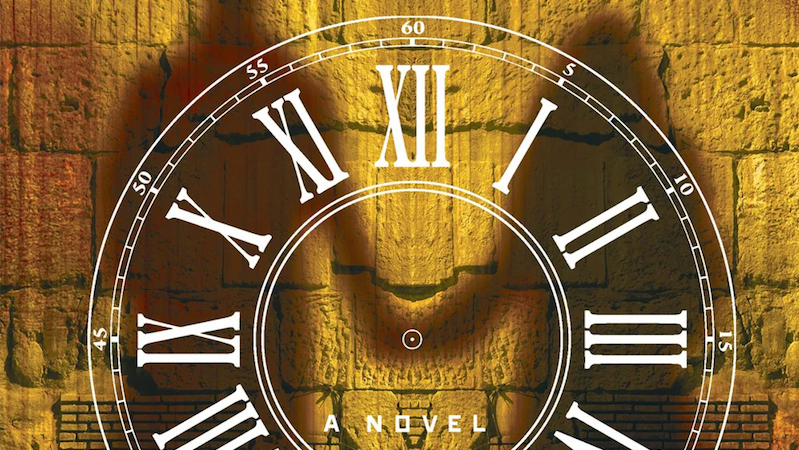Why Salman Rushdie Should Win the Nobel Prize in Literature
A Last-Minute Plea on Behalf of Secular Miracles
I.
In the fall of 2010, I went to see Salman Rushdie speak at a church in Harvard Square. He was promoting Luka and the Fire of Life, the delightful sequel to his children’s novel Haroun and the Sea of Stories. At some point he brought up Thomas Pynchon and how Gravity’s Rainbow greatly influenced him when it was published in 1973. Pynchon didn’t release another novel until Vineland in 1990, by which point Rushdie had become a major novelist, reviewing Vineland in the New York Times. He gave the book a positive review, and was even invited to have dinner with the ever-reclusive Pynchon. So much can happen between books.
Rushdie himself must understand this extremely well. When Haroun and the Sea of Stories was published in 1990, for instance, Rushdie was more than a year into his exile stemming from the fatwa placed on him for writing The Satanic Verses. According to his memoir, Joseph Anton, the only promotion he was “allowed” to do for that book was an “unannounced” visit and book-signing at a Waterstone’s in London. His threat level remained at “level two, one step behind the queen.” Twenty years later this “heretic” read freely and openly—at a church no less. Yes, so much can happen between books. (Though it should be noted that in this same year, 2010, Rushdie’s name appeared on an Al-Qaeda hit list, so the threat has never really dissipated.)
Rushdie’s latest book—his first adult novel since 2008’s The Enchantress of Florence—exercises all of his considerable strengths as a novelist and, most notably, as a thinker. Like all of his best work, Two Years Eight Months and Twenty-Eight Nights is a hybrid novel of ideas and mythology and storytelling—let’s call it magical atheism. Because despite his avowed secularism, Rushdie’s particularly good at presenting fascinating (and often paradoxical) conundrums of belief. He is a secular writer preoccupied with religious storytelling, enticed by the power of narratives to explain, to moralize, to control.
As I read Two Years Eight Months and Twenty-Eight Nights, I considered the remarkable contribution Salman Rushdie has made to literature: from brilliant novels like Midnight’s Children, The Satanic Verses, Shalimar the Clown and The Ground Beneath Her Feet to his necessary memoir Joseph Anton to his criticism in Step Across This Line and Imaginary Homelands. Additionally, Rushdie regularly makes the rounds as a speaker and public intellectual, one of the few novelists who could claim to be a household name. He was knighted in 2007, and has won numerous literary prizes, including a Booker, a Booker of Bookers, and the Best of the Bookers, all for Midnight’s Children.
But most importantly there is Rushdie’s dedication to his art in the face of a global threat to his life. The very fact that he continued to write and publish and protest during the fatwa is a testament to not only his devotion to his craft but also to the importance of confronting censorship and championing the sanctity—that’s right, sanctity—of free, creative, critical and controversial expression.
Who, then, is a more fitting candidate for the Nobel Prize in Literature? Drawn to writers who consciously evoke (or at least inadvertently represent) the voices of the suppressed, the disenfranchised, or the under-represented, the Nobel Prize strives to award writers who “have produced in the field of literature the most outstanding work in an ideal direction.” Vague though it is, think of previous Nobel winners—Toni Morrison, Gabriel Garcia Marquez, Doris Lessing, Mario Vargas Llosa, Orhan Pamuk, Alice Munro, Herta Müller, and Mo Yan—how aptly does “outstanding work in an ideal direction” fit those authors? And, moreover, how well does Salman Rushdie fit in among that list of names? To both, I’d say pretty goddamn well.
To recap: Rushdie is a politically engaged novelist whose books vividly evoke not only his homeland, India, but also London, New York and numerous places in the distant past; he is a knighted Brit, and a major award winner; his writing is full of astounding imagination yet never falls into derivative or (rarely) goofy territory; and when threatened with death with, specifically, assassination, he is a writer who kept writing, who spent more than a decade under police protection, under house arrest, basically unfree, instead of giving in and retracting a word of his book.
Nobel committee, what’s good?
II.
Salman Rushdie was born in the city of Bombay… once upon a time. No, that won’t do. There’s no getting around the date: he was born in Bombay in 1947, the year of India’s independence. Unlike the protagonist of Midnight’s Children, though, Rushdie didn’t emerge into the world at the exact moment of independence, but rather a few months before it. His parents, especially his father, were basically godless, only engaging in “a certain amount of tokenism” like moratoriums on pork and prawn. So rather than religion becoming young Rushdie’s primary influence it was storytelling. He recalls in his memoir his father telling him the tales of the Thousand and One Nights and the Panchatantra and the Kathasaritagara, “told them and re-told them and re-made them and re-invented them in his own way.” These stories taught him “two unforgettable lessons,” he writes in Joseph Anton (which, it should be noted, is written in the third person):
…first, that stories were not true (there were no “real” genies in bottles or flying carpets or wonderful lamps), but by being untrue they could make him feel and know truths that the truth could not tell him, and second, that they all belonged to him, just as they belonged to his father, Anis, and to everyone else, they were all his, as they were his father’s, bright stories and dark stories, sacred stories and profane, his to alter and renew and discard and pick up again as and when he pleased, his to laugh at and rejoice in and live in and with and by, to give the stories life by loving them and to be given life by them in return. Man was the storytelling animal, the only creature on earth that told itself stories to understand what kind of creature it was. The story was his birthright, and nobody could take it away.
Taken together, these two formative influences—his secular father and his country’s emerging independence—form the foundation on which Rushdie’s career was built. All of his novels are based on a belief in the unimpeachable power of stories, and on the notion that all stories are really re-told stories.
A quick survey of his work affirms this: Midnight’s Children is a retelling, as it were, of his own life, while The Ground Beneath Her Feet presents an alternate history of rock music; in The Enchantress of Florence Rushdie riffs on the Renaissance and Italo Calvino’s Invisible Cities via the Mughal Emperor Akbar and Machiavelli, and in his new novel, Two Years Eight Months and Twenty-Eight Nights, Rushdie sets his sights on that compendium of tales his father told and re-told: the Thousand and One Nights. The stories Rushdie imbibed as a kid have emerged in his work revitalized, renewed and brilliantly reinvented.
But he’s also irrepressibly engaged with the present. His characters are often famous actors, legendary rock stars, and contemporary New Yorkers. There are traces of science fiction, comic books and television in his work. These sensibilities combined create a reciprocal tension in which the past informs the present and vice versa—Saleem’s birth attaches him to the history of India, Shalimar the Clown’s past in Kashmir gives insight to his actions in the present and, in his new novel, the family legacy of a jinn comes back in full force to affect its ancestors.
Rushdie’s fascination with storytelling led him to probably the richest source of narrative outside of Arabian Nights: Islam. Rushdie’s interest in the world’s second largest religion began long before he wrote a single word. To begin with, Rushdie is not the family name. His father’s real name was Khwaja Muhammad Din Khaliqi Dehlavi, but “he renamed himself “Rushdie” because of his admiration for Ibn Rushd, “Averroës” to the West, the 12th-century Spanish-Arab philosopher who was “at the forefront of the rationalist argument against Islamic literalism in his time.” (That Rushd has become a character in Rushdie’s new novel is something I’ll touch on a bit later.) Moreover, his father instilled in young Rushdie the notion that “the birth of Islam was fascinating because it was an event inside history, and that, as such, it was obviously influenced by the events and pressures and ideas of the time of its creation.” The only valid way to approach Islam is to “historicize” it, he writes, “to try to understand how a great idea was shaped by those forces.”
For Rushdie, the discovery of “the satanic verses” offered a chance to engage with revelation, with stories that claimed to be more than stories, and what that means for the people who hear them. “It was also easy to see,” he writes in his memoir, “how the world into which the Qur’an was revealed… directly influenced the revelation.”
When Muslim men were killed in battle, the Angel was prompt to encourage their brothers to marry their widows, in order that the bereaved women might not be lost to the faith by remarrying outside it. When the Prophet’s beloved Aisha was rumored to have behaved inappropriately while lost in the desert with a certain Safwan ibn Marwan, the Angel of the Lord came down in some haste to point out that no, in God’s opinion the virtuous lady had not fooled around.
In The Satanic Verses’ second part, entitled “Mahound,” Rushdie plunges the reader into the dreams Gibreel has as the plane he is on is being hijacked. Gibreel is a movie star famous for playing gods. As the novel progresses, Gibreel transforms into his archangelic namesake. In his elaborate visions on the plane, Gibreel becomes both the angel who gives the revelations and the prophet who hears them. He sees the story from both sides. The story is Rushdie’s attempt to “historicize” Islam, to recount its origins with all the political and ethical elements richly hypothesized. The name Mahound, as the Prophet is referred to in this sequence, is both an alternative to Muhammad and a pejorative for Muhammad. The usage of the derogatory moniker is explained in the novel like this:
His name: a dream-name, changed by the vision. Pronounced correctly, it means he-for-whom-thanks-should-be-given, but he won’t answer to that here; nor, though he’s well aware of what they call him, to his nickname in Jahilia down below—he-who-goes-up-and-down-old-Coney. Here he is neither Mahomet nor MoeHammered; has adopted, instead, the demon-tag the farangis hung around his neck. To turn insults into strengths, whigs, tories, Blacks all chose to wear with pride the names they were given in scorn; likewise, our mountain-climbing, prophet-motivated solitary is to be the medieval baby-frightener, the Devil’s synonym: Mahound.
In Mecca (referred to as Jahilia here, “a name taken from the Arabic term for the period of ‘ignorance’ that preceded the coming of Islam”) at the time of the Prophet, polytheism dominated the spiritual domain—”by the time of Mahound, three hundred and sixty stone gods clustered around God’s own stone”—and city officials had a vested interest in keeping things that way, namely the controllers of “the famous temple of Lat at the city’s southern gate.” If the people began to believe Mahound’s prophecies, they would stop worshipping at the temples, stop making “offerings,” and thus the controllers would lose revenue.
Among the many gods in these temples is one called Allah, but “ask the Jahilians and they’ll acknowledge that this fellow has some sort of authority, but he isn’t very popular: an all-rounder in an age of specialist statues.” So Mahound’s claim that this unfashionable god is the one true god was controversial. Fearing the “one one one, [Mahound’s] terrifying singularity,” the Grandee Abu Simbel—whose wife controls the temple of Lat—asks Mahound to make a concession: “If our great God,” Mahound says when he recounts his meeting with Simbel, “could find it in his heart to concede… that three, only three of the three hundred and sixty idols in the house are worthy of worship… we will be tolerated, even officially recognized.”
Mahound climbs the mountain to talk to the angel. Gibreel, as the angel, has no idea what to say. He is, after all, a contemporary actor stuck in the role of a supernatural creature. Though this is not exactly a stretch for him (he made his fame in India playing various deities), Gibreel “remains silent, empty of answers, for Pete’s sake, bhai, don’t go asking me.” But then he “begins to feel that strength, that force, here it is at my own jaw working it, opening shutting; and the power, starting within Mahound, reaching up to my vocal cords and the voice comes.”
Mahound returns to Jahilia and, in front of the whole town, recites the angel’s newest revelatory verses: “Have you thought upon Lat and Uzza, and Manat, the third, the other?… They are exalted birds, and their intercession is desired indeed.”
The town mostly rejoices. Mahound’s disciples do not. The Grandee’s wife, Hind, the caretaker of the temple of Lat, is also displeased, even though she stands to profit much from Mahound’s latest recitation. She tells Mahound, “You shouldn’t have done what you did,” because “if you are for Allah, I am for Al-lat. And she doesn’t believe your God when he recognizes her… The war between us cannot end in truce.”
So Mahound once again traipses up Mount Cone. The next thing Gibreel (the actor) knows, he’s wrestling the prophet, who “has a rage in him, he has to know he has to K N O W and I have nothing to tell him.” But soon the archangel pins Mahound down, and the voice comes spilling out of him again.
“It was the Devil,” Mahound says when he returns to Jahilia, “filled with the urgency of his news.” His excitement mounts:
This is what he has heard in his listening, that he has been tricked, that the Devil came to him in the guise of the archangel, so that the verses he memorized, the ones he recited in the poetry tent, were not the real thing but its diabolic opposite, not godly, but satanic.
After this revelation, the Grandee “institutes a policy of persecution” in which adherents to the new religion—the name of which translates to mean submission—”must submit to being sequestered in the most wretched, hovel-filled quarter of the city; to a curfew; to a ban on employment.” A nearby settlement offers shelter to these oppressed people, and they take it, Mahound included. The new religion has begun to move. A new idea is born.
III.
It is an eerie experience rereading The Satanic Verses now in light of what happened to its author, as if, like a character in one of his novels, Rushdie had written his own future. Retroactively ominous signs are all over the book; it’s almost creepy. To begin with the obvious, the novel is about the inflexibility of fundamentalism. Early on in the book, while Saladin and Gibreel are still onboard the hi-jacked plane, Saladin stews in his chair, imagining how he’d argue with the woman in charge of the hi-jackers:
…unbendingess can also be monomania, he wanted to say, it can be tyranny, and also it can be brittle, whereas what is flexible can also be humane, and strong enough to last. But he didn’t say anything, of course, he fell into the torpor of the days.
This could have easily been an epigraph for Rushdie’s years under the fatwa.
The book is anything but unbending. In fact, it is riddled with uncertainty, ambiguity and contradiction. Gibreel becomes an angel, yet acts devilishly. But aren’t his actions controlled by a higher force? And, if so, doesn’t that suggest that even if his actions are devil-like he is ultimately doing good? In the end, Gibreel comes full circle, saving Saladin from a fire in an act of altruism. Saladin, for his part, grows horns and goat-like features: a devil. And his desire for revenge against Gibreel brings out the evilest part of him. Yet he is returned to his former self, his humanity somehow magically restored.. Angel, devil—in the real world they appear identical.
Fundamentalism allows for no such complexity, preferring life in stark black and white. Rushdie elaborates in his memoir:
“What kind of idea are you?” the novel asked the new religion, and suggested that an idea that refused to bend or compromise would in most cases be destroyed, but conceded that, in very rare instances, such ideas became the ones that changed the world.
Well, Islam was one of those “very rare instances,” and the novel puts these questions to its founder:
Mahound, any new idea is asked two questions. When it’s weak: will it compromise? We know the answer to that one. And now, Mahound, on your return to Jahilia, time for the second question: How do you behave when you win? When your enemies are at your mercy and your power has become absolute: what then?
Will this new idea kill someone who criticizes it? Will it censor, suppress, expurgate, and threaten? Will it refuse a debate, insisting that its legitimacy is divine and independent of human consideration? Will it call for a fiction writer’s death, convincing everyone that the writer was a “bigot,” and the world will somehow come to believe that one man’s “bigotry” is worse than another man’s murder?
Make no mistake: The Satanic Verses contains highly charged material, understandably offensive to the true believer. It is, in part, one of the most blistering critiques of religious fundamentalism ever to take fictional form. Of late, there has been a mini publishing boom of atheist critiques of religion, but in 1988, Rushdie’s pointed jabs were radical. His interpretation of the Prophet’s acceptance and subsequent denial of “the satanic verses” is basically a repudiation of Islam’s origin story, an attempt to show how political, personal and, well, human influences matter more than divine intervention. The character Salman (more on that name later) voices what is probably the most devastating attack on Muhammad’s revelations—namely, that the Archangel’s utterances aligned all too conveniently with the Prophet’s own despotic wishes.
So, yeah. Offensive. Critical. But nuanced. Unfortunately, though, The Satanic Verses suffers from the inevitable paradox of similar attacks on fundamentalism—the people who most need to engage with the critique are the people least likely to attempt to understand it.
Because if they were to read it, they would see that Rushdie’s masterpiece is about a lot more than religion. Remember: only 72 pages of 547 deal with Muhammad. The book is also about love, about identity, about betrayal, about what is or is not forgivable, about good and evil and the difficulty of telling them apart. One can plainly see how personal the book is, too. Saladin Chamcha, the less successful actor of the pair, is clearly closer to Rushdie’s own experience, and his wife Pamela (and all the sadness and turmoil that exists between them) come from the author’s failed relationship with his first wife. Inside the pages of this whirlwind epic are stories within stories within stories. There is Rosa Diamond, the woman who happens upon Saladin and Gibreel after they fall from the sky. There is the mountain-climber Alleluia Cone, Gibreel’s obsession. There is the Granny Ripper—a serial killer who dismembers elderly women—and Dr. Uhuru Simba, the man falsely accused of the crime. There is an Imam who eats an entire uprising. In other words—it’s about a lot more than Muhammad. But people overlooked the nuance, the complexity, the moral and emotional depths of such a creative achievement. Instead, they saw one thing.
But back to the accidental prophesies of The Satanic Verses. There is a character named Salman, but here, Salman is a follower of the Prophet—the scribe, in fact, the man responsible for writing down Mahound’s revelations. He’s the one who questions the Prophet’s “convenient” conversations with the archangel. You want to guess what happens to this writer who questions the Word?
Mahound shakes his head. “Your blasphemy, Salman, can’t be forgiven. Did you think I wouldn’t work it out? To set your words against the Words of God.”
Pretty fucking ominous, right? Luckily, neither Salman is killed.
Though a section like this may suggest that Rushdie knew what he was doing, that he was deliberately hoping to evoke the ire of Islamic leaders, recall, again, that most of the novel is focused on Saladin and Gibreel and their unbendingness, their own personal inflexibility. Yes, Islam is in there, too, but as part of a much larger and more artful concoction. In other words, Rushdie wouldn’t spend five years writing 547 pages just to criticize religious fundamentalism; he could have done that (and has) in an essay. Nothing has done more damage to the wondrous and complex accomplishment of The Satanic Verses than its reductive association with controversy. It’s a beautiful and challenging book—and also very funny—that actively refutes the kind of simplicity attributed to it by its critics.
IV.
Here’s the point, though: there are parts of The Satanic Verses that are offensive to Islam, offensive, in many ways, to religion in general—and this is a good thing. Writers and critics who suggested that Rushdie had done something wrong by going after Islam should all be ashamed of themselves—because what, after all, are religions founded on? A text. And what are these texts? Stories. And what are those stories? Fictional.
The idea that somehow the text of the Qur’an is more legitimate than the text of The Satanic Verses is absurd. A businessman in a desert city hears an angel, whose words are the perfect word of Allah (so perfect, it seems, that many of the stories were borrowed from the Torah), recites them to scribes who write them down verbatim. That is the story upon which Islam is founded, just as Christianity is founded on the crucifixion and resurrection of Jesus. They are stories. They are, ultimately, only texts.
But these special texts have grown immune to scrutiny—at least of any meaningful kind—whereas a novel seems born to critique, to suffer detailed deconstruction, by any and everyone. But question the Qur’an in a novel? Draw a picture of Mohammed in a cartoon? What are the consequences then?
What kind of idea are you?
“Something new was happening here,” Rushdie writes in Joseph Anton, “the growth of a new intolerance. It was spreading across the surface of the earth, but nobody wanted to know. A new word had been created to help the blind remain blind: Islamophobia.”
To many people, including secular writers and journalists, Rushdie ended up a villain. In the conflict between a religion with a billion followers vs. a literary novel, somehow the novelist became the antagonist. Rushdie continues:
To criticize the militant stridency of this religion in its contemporary incarnation was to be a bigot…When, he wanted to know, did it become irrational to dislike religion, any religion, even to dislike it vehemently? When did reason get redescribed as unreason? When were the fairy stories of the superstitious placed above criticism, beyond satire? A religion was not a race. It was an idea, and ideas stood (or fell) because they were strong enough (or too weak) to withstand criticism, not because they were shielded from it. Strong ideas welcomed dissent.
Islamophobia is real, as we continue to see, but Rushdie’s worst crime was being critical of ideas, not the malicious depiction of stereotypical Muslims. This is the crucial difference: Rushdie’s points are intelligent, thoughtful, and expertly rendered, but nowhere does he suggest that all Muslims are unbending fundamentalist killers.
This past year, when PEN awarded the French magazine Charlie Hebdo its Freedom of Expression award, numerous authors objected publically and vehemently. Francine Prose, for instance, said that while she “deplored” the shootings at the offices of the storied satirical publication—in the end, twelve people were murdered—she thought that the award represented tacit support for Charlie Hebdo’s overarching project, which she found offensive. Peter Carey attacked PEN’s “blindness to the cultural arrogance of the French nation, which does not recognize its moral obligation to a large and disempowered segment of the population.” For these authors, Charlie Hebdo’s satires added to the oppression of the minority Muslim population there, and to award it was to sanction its activity.
This incredibly heated conflict among otherwise likeminded writers raised an important question: can you honor someone for doing something courageous without agreeing with everything they stand for? Can we celebrate brave soldiers in wars we don’t condone? Can we fight for someone’s right to do something we loathe? Can we defend free speech even when it offends us to the core?
Rushdie’s reaction to the objecting authors was immediate and perhaps immoderate: “The award will be given,” he tweeted. “PEN is holding firm. Just 6 pussies. Six Authors in Search of a bit of character.” This is an almost cringe-worthy first reaction, but Rushdie later elaborated: in response to Francine Prose, “Our fellow artists were murdered for their ideas and you won’t stand up for them. I’m very sorry to see that. I think you’ll find the vast majority of the PEN membership will be sorry, too.” I don’t mean to replay the whole PEN/Charlie Hebdo controversy here but it’s important to remember Rushdie’s very particular place in the conversation about religious extremism and freedom of expression. He remains embroiled in the debate, dedicated to his life’s work, still exploring those stories his father told him.
* * * *
On the subject of censorship and offense, I can’t think of a better response than the one Philip Pullman offered at reading I saw him give at Oxford in the spring of 2010. During the Q and A a man asked Pullman about the title of his latest novel, The Good Man Jesus and the Scoundrel Christ. “Mr. Pullman,” the man said, “the title of your book seems to an ordinary Christian offensive. To call the Son of God a scoundrel is an awful thing to say.”
This is how Pullman responded:
“Yes, it was a shocking thing to say, and I knew it was a shocking thing to say. But no one has the right to live without being shocked. No one has the right to spend their life without being offended. Nobody has to read this book. Nobody has to pick it up. Nobody has to open it. And if they open it and read it they don’t have to like it. And if you read it and dislike it you don’t have to remain silent about it. You can write to me. You can complain about it. You can write to the publisher. You can write to the papers. You can write your own book. You can do all those things, but there your rights stop. No one has the right to stop me writing this book. No one has the right to stop it being published or sold or bought or read. And that’s all I have to say on that subject.”
That’s all I have to say, too.
V.
Two Years Eight Months and Twenty-Eight Nights takes, as its foundation, the life of Ibn Rushd, the philosopher from whose name Rushdie’s father adapted his. The conceit here is that Rushd had children with a jinn (a genie) who passed down through succeeding generations the magic of their matriarch. After a great storm in the present day, the wall between the jinn world and the human world bursts open, unleashing endless chaos into the world, as the ancestors of Rushd discover their heritage and, thus, their powers. The legacy of history finds its way, again, into the present.
“History is unkind to those it abandons,” Rushdie writes in the book, “and can be equally unkind to those who make it.” Rushd’s commentaries on Aristotle formed the basis of secular philosophy, and his book The Incoherence of the Incoherence (a title that Rushdie has a lot of fun with) helped spread Aristotle’s philosophy of reason throughout the world. His legacy, though, is contradictory: “it is a strange fate for a believer to become the inspiration of ideas that have no need for belief, and a stranger fate still for a man’s philosophy to be victorious beyond the frontiers of his own world but vanquished within those borders.”
Let us not allow Salman Rushdie’s legacy to be tarnished by false accusations of bigotry. Let us not allow The Satanic Verses to wind up some cautionary tale for artists, a point of avoidance. Yes, racism and xenophobia and nationalism remain deeply corrosives realities of contemporary life, and yes, those forces must be fought with vigor and intelligence. But so too must censorship and its implicit violence be fought with fervor. And we can fight both and mean it. It’s not an either/or proposition. We must be very careful when we begin legislating creativity, when we put limitations on its scope, because the best and most valuable art comes from a place of courage and unbridled openness.
We are lucky to have a novelist like Salman Rushdie, whose bravery and commitment to art is a vital example of what literature can mean in the real world. Lucky, too, that we, as readers, have Midnight’s Children and The Satanic Verses and Joseph Anton and Shalimar the Clown and Two Years Eight Months and Twenty-Eight Nights. We are lucky that Rushdie survived the fatwa. I fear now that people only remember The Satanic Verses because of the controversy, and even then only in a vague way. But there is so much more to the book than the offense taken by its critics, the critiqued. It is a work of profound imagination. It illustrates how new ideas—the best ideas—are forged by challenge, by rigorous and difficult debate.
So, Nobel committee, in conclusion, let me say this: Please award Salman Rushdie the Nobel Prize for Literature. Not just because of the fatwa, but because his novels are extraordinary contributions to the world of letters, and his imagination remains rich and alive to the depth and complexity of being human. We need more writers like Rushdie, more books like his—books that refuse simple answers and provoke strong responses. We need art that challenges, dissents, that won’t stand down. We need artists who are courageous, open to the world, who want to better it. In other words, we need more Satanic verses.




















